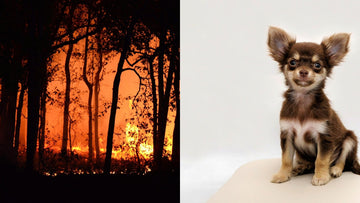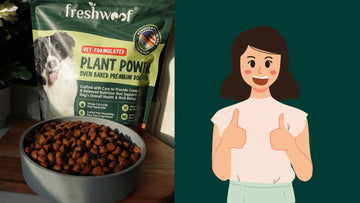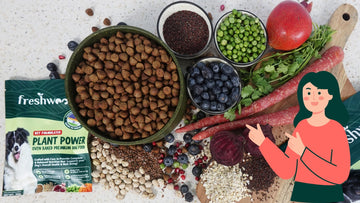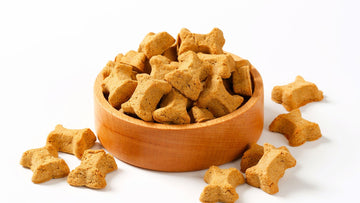When we think about climate change, we think the main culprits that contribute to global warming are the burning and extraction of fossil fuels and transportation. However, there is a larger threat to our planet that often goes unchallenged and unnoticed: Meat cultivation.
According to the Land Health Institute, the meat industry produces more greenhouse gases than all transportation combined. The Food and Agriculture Organization reports that “about 44% of livestock emissions are in the form of methane.” Methane is more harmful than carbon dioxide, as it has a global warming potential 82 times greater than that of carbon dioxide over 20 years. Livestock and their by-products account for at least 32,000 million tons of carbon dioxide (CO2) per year or 51% of all worldwide greenhouse gas emissions.
Every day more of our precious rainforests are being destroyed to cultivate meat. Animal agriculture is responsible for up to 91% of Amazon's destruction. 1-2 acres of rainforest are cleared every second and Up to 137 plant, animal, and insect species are lost every day due to rainforest destruction.
Meat is responsible for the largest global water footprint. Animal agriculture water consumption ranges from 34-76 trillion gallons annually. 2,500 gallons of water are needed to produce 1 pound of beef. 477 gallons of water are required to produce 1lb. of eggs; almost 900 gallons of water are needed for 1lb. of cheese. In only the US alone, 5% of water is consumed by private homes and 55% of water consumed in the US is for animal agriculture. Animal Agriculture is responsible for 20%-33% of all freshwater consumption in the world today.
According to the Worldwatch Institute, “Roughly 2 of every 5 tons of grain produced in the world is fed to livestock, poultry, or fish; decreasing consumption of these products, especially of beef, could free up massive quantities of grain and reduce pressure on land. If all grain were fed to humans instead of animals raised for meat, we could feed an extra 3.5 billion people and fight world hunger. Currently, 77% of the world’s agricultural land is used for raising livestock, which provides only 17% of calories and 33% of protein for global consumption. While crops use the remaining 23% of this agricultural land in exchange for 83% calories and 67% protein for global consumption. In short, industrial livestock farming is not only inefficient but also not equitable. If we stop growing plants to feed farm animals (who are ultimately slaughtered in the plates & bowls of people and dogs) and instead grow pulses, fruits and vegetables for humans and pets, we could feed an extra 350 million people and a whole lot of dogs too.
All these environmental impacts are not limited to humans consuming meat. Pets eating a meat-based diet are contributing immensely to the destruction of our planet. Recent University of Edinburgh research tells us that making meat-based food for cats and dogs uses up a landmass twice the size of the UK every year. That’s because the global meat industry needs a huge amount of space to keep farm animals, and great swathes of forest are being felled to make room. Switching a large dog to vegan dog food could save 60 square feet of the rainforest a day! The environmental impact of a 30 kg dog eating a raw meat diet is almost twice that of an average meat-eating human.
We know producing pet food creates 64 million tonnes of carbon dioxide each year that’s like driving 14 million cars for a year. That is so much meat when it doesn’t have to be. It takes more energy and resources to create a meat-based pet food and results in more waste.
A Vegan dog food like Freshwoof needs far fewer natural resources and creates lower greenhouse gas emissions. Freshwoof consumes 60% less water, and 75% less land, and produces 90% less greenhouse gas emissions as compared to traditional meat-based dog food. A plant-based diet like Freshwoof is not only better for the planet but also healthier for our dogs in terms of reduced allergies, improved digestive health, more energy, and a well-maintained weight.
By feeding yourself and your dog plants instead of meat, you can literally help save the world!





